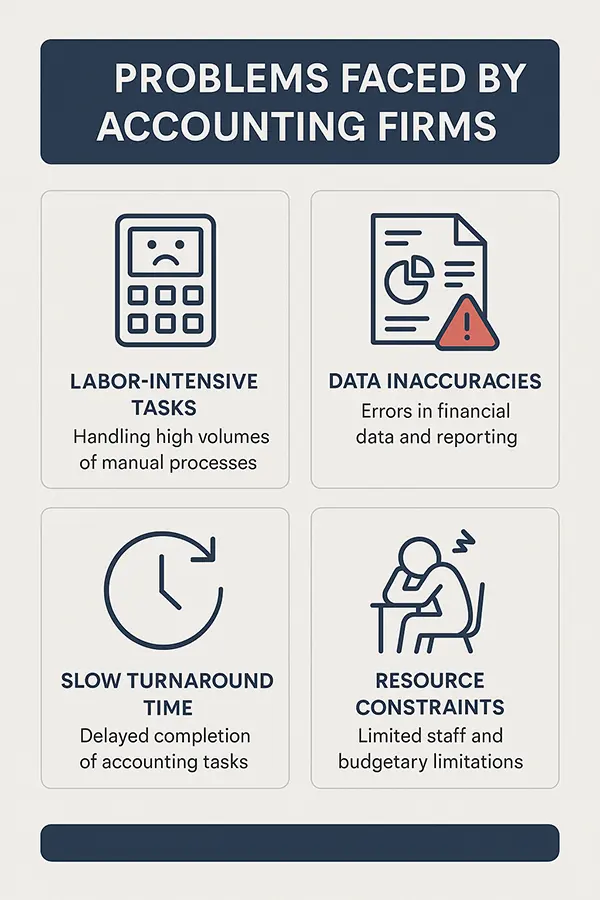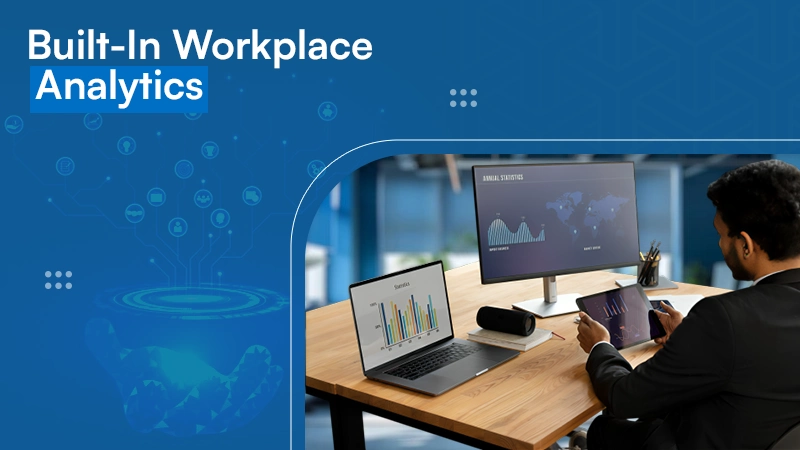AI applies consistent rules, verifies data, and detects anomalies in real-time, ultimately decreasing the potential for human error in financial reporting.
KEY TAKEAWAYS
- AI automates repetitive accounting tasks, saving time and reducing workload.
- Predictive insights help businesses forecast trends and plan resources effectively.
- AI improves financial accuracy by detecting errors and anomalies instantly.
- Real-time analytics enable quick, informed decisions to prevent costly mistakes.
AI has become a major part of nearly all sectors. Because of its capabilities and how it makes things easier. Whether it’s an AI to human text converter or a smart tool to organize data, you’ll get everything.
Accounting is no exception, and now various AI tools are making it more effective. Given that the global accounting market is estimated to reach $1.5 trillion by 2032, there must be no mistakes.
So, in this article, I’ll talk about AI and the new era of accounting. I’ll mention how it is a better choice for agencies and people all around the world. Let’s get started.
Automating the Mundane: How AI Handles Repetitive Accounting Tasks
Artificial Intelligence is transforming the accounting service sector and taking over routine tasks such as data entry, invoice processing, and tracking transactions; areas that traditionally took a good amount of time to do correctly.
Intelligent algorithms can scan the documents, pull out any relevant financial inputs, and populate accounting ledgers with them; all of which can be done automatically under the right conditions, saving you hours.
The accountant can now dedicate their work focused on more complicated service work, such as strategic financial planning, client assistance, going through financial projections, and so forth.
Predictive Insights: Turning Data into Strategic Financial Decisions
AI machine accounting can do more than record what happened and utilize underlying machine learning for insight. It can predict what will happen in the future. For instance, it can analyze historical data, market characteristics, and industry metrics to assess an organization’s cash flow pattern or seasonal revenue increases or decreases, and possible future risks.
Moving from hindsight to foresight not only gives businesses predictive capabilities but also empowers them to mitigate potential future risk when planning for future potential revenue (investment), potential expenses, or obligations (taxes). Below, you can see the major issues faced by accounting firms.

This shift from reactions to predictions can also give a business continuity advantage and an advantage over competitors. The organization can allocate resources in a more planned manner, limit or eliminate financial surprises and trends, and spot future options for growth and resources sooner than ever.
Enhanced Accuracy: Reducing Human Errors in Financial Reporting
It even happens to the best accountants that mistakes do get made, and at times of high volume, when processing financial transactions can be rushed. AI can help mitigate against these mistakes through the consistency of applying rules, validating against multiple sources, and finding anomalies in near real-time.
If, for example, there is a transaction documented in the report, AI will identify mismatched transactions, duplicate entries, or missing documentation without delay. Just in case someone made a mistake, there’s no need to worry, as AI can quickly point it out and provide insights so it can be fixed.
With better accuracy and stronger long-term trends, AI not only improves the data quality but also provides certainty, trusting stakeholders to capitalize on decisions through real, accurate, and up-to-date data on the financial position.
Real-Time Analytics: Faster Access to Critical Business Metrics
Accounting reports were historically slow to deliver business intelligence, often showing up weeks late. AI-based platforms upend that scenario by providing analytics when the need arises. Managers can analyze the real-time market, track expenses, and evaluate various projects all at the same time. This helps in making more profit.
This visibility enables speedier decisions and strategy pivots. Whether a manager notices an overspend early or sees a revenue stream underperforming, real-time analytics puts actionable information literally at a manager’s fingertips.
Companies can now operate more efficiently and agilely, using business intelligence that is continuously evaluated. Organizations will respond more quickly to market adjustments or internal issues before they become costly mistakes. It’s like using www.humanizeai.pro for masking that you wrote a text with AI, but want no one to find out.
The Future Accountant: Blending AI Efficiency with Human Expertise
Artificial intelligence will not ultimately replace accountant jobs, but instead will redefine those jobs. Much of the compliance and analytical work will shift to machines, freeing accountants to become strategic advisers.
No machine can replicate human judgment, more than data processing capability, human ethics, and the ability to build relationships with humans. In the future, accountants would be hybrid professionals, with capabilities similar to those of a super robot. Their financial knowledge would be phenomenal.
This agile accountant, leveraging technology, with the mixed “human insight,” allows for smarter numbers and smarter decisions.
Final Words
The adoption of AI in accounting is a watershed moment in how businesses manage, interpret, and act upon their financial data. As a result, AI frees accountants from tedious workflows, enhances accuracy, provides foresight by analyzing patterns quickly, and delivers real-time analytics.
This transformation leads to improved business decision-making, increased efficiency, and enhanced competitiveness in a world of increasingly complex data. AI will continue to evolve, and the future of accounting will be a convergence of human judgment and machine intelligence, resulting in a new era of smarter numbers, deeper insights, and more confident decisions for businesses of all sizes.
- Automating the Mundane: How AI Handles Repetitive Accounting Tasks
- Predictive Insights: Turning Data into Strategic Financial Decisions
- Enhanced Accuracy: Reducing Human Errors in Financial Reporting
- Real-Time Analytics: Faster Access to Critical Business Metrics
- The Future Accountant: Blending AI Efficiency with Human Expertise
- Final Words




